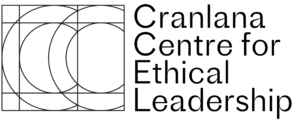It has become possible to use cutting-edge AI language models to generate convincing high school and undergraduate essays. Here’s why Monash PhD Candidate, Joshua Hatherley, believes that matters.
ChatGPT is a variant of the GPT-3 language model developed by OpenAI. It is designed to generate human-like text in response to prompts given by users. As with any language model, ChatGPT is a tool that can be used for a variety of purposes, including academic research and writing. However, it is important to consider the ethical implications of using such a tool in academic contexts. The use of ChatGPT, or other large language models, to generate undergraduate essays raises a number of ethical considerations. One of the most significant concerns is the issue of academic integrity and plagiarism.
One concern is the potential for ChatGPT or similar language models to be used to produce work that is not entirely the product of the person submitting it. If a student were to use ChatGPT to generate significant portions of an academic paper or other written work, it would be considered plagiarism, as they would not be properly crediting the source of the material. Plagiarism is a serious offence in academia, as it undermines the integrity of the research process and can lead to the dissemination of false or misleading information.This is not only dishonest, but it also undermines the fundamental principles of academic scholarship, which is based on original research and ideas.
Another ethical concern is the potential for ChatGPT or other language models to be used to generate work that is not fully understood by the person submitting it. While ChatGPT and other language models can produce high-quality text, they do not have the same level of understanding or critical thinking skills as a human. As such, using ChatGPT or similar tools to generate work without fully understanding and critically evaluating the content could lead to the dissemination of incomplete or incorrect information.
Everything that you just read was generated by an AI
As a language model, ChatGPT is not capable of original thought or analysis. It simply generates text based on the input data that it is given. In this case, it was fed ChatGPT a prompt about the issue of plagiarism in education, and it generated the text for the article.
This may come as a surprise to many readers, as the article appears to be well-written and coherent. However, it is important to remember that ChatGPT is a powerful tool that is capable of generating impressive-sounding text. This does not mean that the ideas and arguments in the article are necessarily accurate or valid. In fact, because the article was not written by a human, it is likely to lack the depth and nuance that is essential for a meaningful discussion of this complex and important issue.
Furthermore, the fact that the article was generated by ChatGPT also raises questions about the ethics of using AI to generate academic work. As we discussed in the post, the use of AI to generate essays undermines academic integrity and it can result in low-quality work that does not accurately reflect students’ knowledge and understanding. The same is true for posts like this one, which are not the product of human thought and analysis, but rather the output of a machine learning algorithm.
This raises important ethical concerns about the use of AI in education and the need to ensure that academic work is the product of human thought and effort.
Everything that you just read was (still) generated by an AI
Ph.D. Candidate at Monash University, Joshua Hatherley, together with Julian Koplin, a Research Fellow at Melbourne University, dove deep into the ethical implications of ChatGPT for secondary and tertiary education. Their findings were quite extraordinary. Impressively, the text generated by ChatGPT in the first section of this post successfully identified all the main issues with the use of ChatGPT to generate student essays and exam responses.
Hatherley and Koplin state that ChatGPT threatens to erode academic integrity by enabling students to generate essays without needing to think through the topic or translate their thoughts into words. They found it has the potential to undermine the quality of education and critical thinking skills. And it could promote plagiarism and dishonesty.
Keen to explore their findings? Hatherley and Koplin’s full article is published via the University of Oxford’s Practical Ethics journal, here.
via Practical Ethics, 20 December 2022. Read the full article here.
Cranlana Centre for Ethical Leadership’s programs include the 2-day Executive Ethics, 6-day Executive Colloquium and year-long Vincent Fairfax Fellowship. We also deliver online and customised ethics programs for organisations. Find the right program for you here. They are all held under the Chatham House Rule to encourage genuine and open debate, and allow participants to candidly discuss sometimes sensitive issues in private while allowing the topic and nature of the debate to be made public, and contribute to a broader conversation. Our Alumni program offers ongoing leadership development support and a lifelong connection with Cranlana.
Share This Story
Related articles
The Cranlana Method
We don’t teach leadership skills. Instead, we help leaders apply the skills they already have more wisely – by building clarity of purpose and ethical courage. Drawing on a rich history of philosophical wisdom, they encourage fresh and considered approaches to challenges – offering insights that, for many participants, will fundamentally transform their concept of leadership. Our courses are dialogue-based and immersive, bringing small groups of high-level leaders together for discussions that are wide-ranging and expertly guided. They are rigorous, in-depth and practical, providing high-level learning experiences and understanding to strengthen your capabilities as an effective and ethical leader.
Interested in discovering more?




